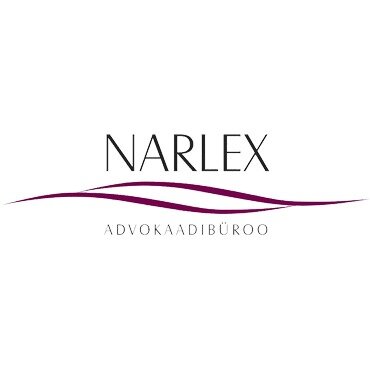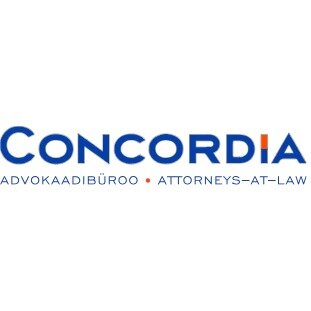Best Antitrust Litigation Lawyers in Tallinn
Share your needs with us, get contacted by law firms.
Free. Takes 2 min.
List of the best lawyers in Tallinn, Estonia
About Antitrust Litigation Law in Tallinn, Estonia
Antitrust litigation, also known as competition law litigation, refers to legal actions brought before courts or authorities concerning anti-competitive practices such as cartels, abuse of dominant position, and anti-competitive mergers. In Tallinn, Estonia, antitrust law is primarily governed by Estonian national legislation and European Union competition rules. The Estonian Competition Authority is responsible for enforcing competition law and overseeing that the market operates fairly for both consumers and businesses. Individuals and companies that believe they have suffered from unfair competition or restrictive practices may bring claims or complaints under antitrust law in Estonia.
Why You May Need a Lawyer
There are several situations where you may require the assistance of an antitrust litigation lawyer in Tallinn, Estonia. Common scenarios include:
- Suspecting or being accused of participating in a cartel or price-fixing agreement
- Facing allegations of abusing a dominant position in a market
- Challenging anti-competitive clauses in commercial contracts
- Needing to resolve disputes related to mergers or acquisitions that may restrict competition
- Seeking damages for losses suffered due to competitors' anti-competitive conduct
- Responding to investigations by the Estonian Competition Authority
- Ensuring compliance with both national and EU competition regulations
Given the complexity of competition law and the potential consequences of breaches, including fines or court-ordered damages, professional legal guidance is essential to protect your rights and interests.
Local Laws Overview
Estonian antitrust law is mainly encapsulated in the Estonian Competition Act. This act outlines prohibited agreements, abuse of dominant position, merger control, and the enforcement powers of the Competition Authority. Estonia, as an EU member state, must also comply with EU competition regulations and case law, especially regarding cross-border or EU-wide markets.
Key aspects of local antitrust law include:
- Prohibition of agreements that restrict competition, such as cartels or price-fixing arrangements
- Prevention of abuse by companies that hold a dominant market position, for example, through unfair pricing or exclusive dealing
- Notification and approval requirements for mergers and acquisitions meeting certain thresholds
- Powers of the Estonian Competition Authority to investigate, search premises, request documents, and impose administrative sanctions
- Rules for individuals and businesses to bring private damages claims in courts if they have suffered losses due to anti-competitive practices
All businesses operating in Estonia must adhere to the national Competition Act as well as relevant EU antitrust provisions.
Frequently Asked Questions
What is considered an antitrust violation in Estonia?
Any agreement, decision, or concerted practice between companies that restricts competition, abuse of dominant position in a market, or certain mergers without proper notification may be considered antitrust violations.
Who enforces antitrust law in Estonia?
The Estonian Competition Authority is the main enforcement body for antitrust law in Estonia. EU competition rules are also enforced by the European Commission when appropriate.
What are the penalties for breaching antitrust law?
Penalties may include administrative fines, court-ordered compensation for victims, invalidation of anti-competitive agreements, and, in some cases, criminal charges against individuals.
Can I bring a private claim if I have suffered due to antitrust violations?
Yes, affected individuals or businesses can bring private actions in Estonian courts to seek compensation for damages resulting from anti-competitive practices.
What is the process for reporting suspected antitrust violations?
You can file a complaint with the Estonian Competition Authority. Submissions can be made in writing, and evidence supporting your claim should be provided wherever possible.
Does Estonian antitrust law apply to foreign businesses?
Yes, if foreign businesses conduct activities that have an effect on competition in Estonia, local competition law applies in addition to relevant EU provisions.
What are the time limits for bringing an antitrust claim?
Time limits may vary depending on the nature of the claim, but generally, claims should be brought within three years from when the claimant became aware of the antitrust violation and the resultant harm.
What constitutes a dominant market position?
A company is considered to hold a dominant position if it can operate independently of competitive pressures. A market share above 40 percent may indicate dominance, but this depends on market structure and other factors.
Are merger notifications always required?
Not all mergers must be notified. Notification is required if the merging parties meet certain turnover thresholds set out in the Estonian Competition Act.
How long do antitrust investigations typically take in Estonia?
The timeframe can vary widely depending on the complexity of the case, but investigations may take several months to years for more significant matters.
Additional Resources
For further information and assistance regarding antitrust litigation in Tallinn, Estonia, consider contacting or referring to the following organizations:
- Estonian Competition Authority (Eesti Konkurentsiamet) - The main body for enforcement of competition law
- Ministry of Justice of Estonia - For information on relevant legislation and legal procedures
- Chamber of Commerce and Industry - Can provide guidance to businesses on compliance and best practices
- Local legal associations and bar associations - For referrals to experienced antitrust litigation lawyers
- European Commission Directorate-General for Competition - For EU-wide competition law information
Next Steps
If you believe you need assistance in an antitrust litigation matter in Tallinn, Estonia, start by gathering all relevant documents and information about your situation. Consider writing a summary of your concerns or suspected anti-competitive practices.
Contact a qualified attorney who specializes in competition or antitrust law in Estonia. Many law firms offer an initial consultation to assess the strength of your case.
If you are seeking to report a violation, you may also directly approach the Estonian Competition Authority with your complaint. For those needing to defend against allegations or navigate a complex investigation, early legal representation is highly recommended.
Proactive legal advice and prompt action are the best ways to protect your interests and ensure compliance with Estonian and EU competition law.
Lawzana helps you find the best lawyers and law firms in Tallinn through a curated and pre-screened list of qualified legal professionals. Our platform offers rankings and detailed profiles of attorneys and law firms, allowing you to compare based on practice areas, including Antitrust Litigation, experience, and client feedback.
Each profile includes a description of the firm's areas of practice, client reviews, team members and partners, year of establishment, spoken languages, office locations, contact information, social media presence, and any published articles or resources. Most firms on our platform speak English and are experienced in both local and international legal matters.
Get a quote from top-rated law firms in Tallinn, Estonia — quickly, securely, and without unnecessary hassle.
Disclaimer:
The information provided on this page is for general informational purposes only and does not constitute legal advice. While we strive to ensure the accuracy and relevance of the content, legal information may change over time, and interpretations of the law can vary. You should always consult with a qualified legal professional for advice specific to your situation.
We disclaim all liability for actions taken or not taken based on the content of this page. If you believe any information is incorrect or outdated, please contact us, and we will review and update it where appropriate.
















